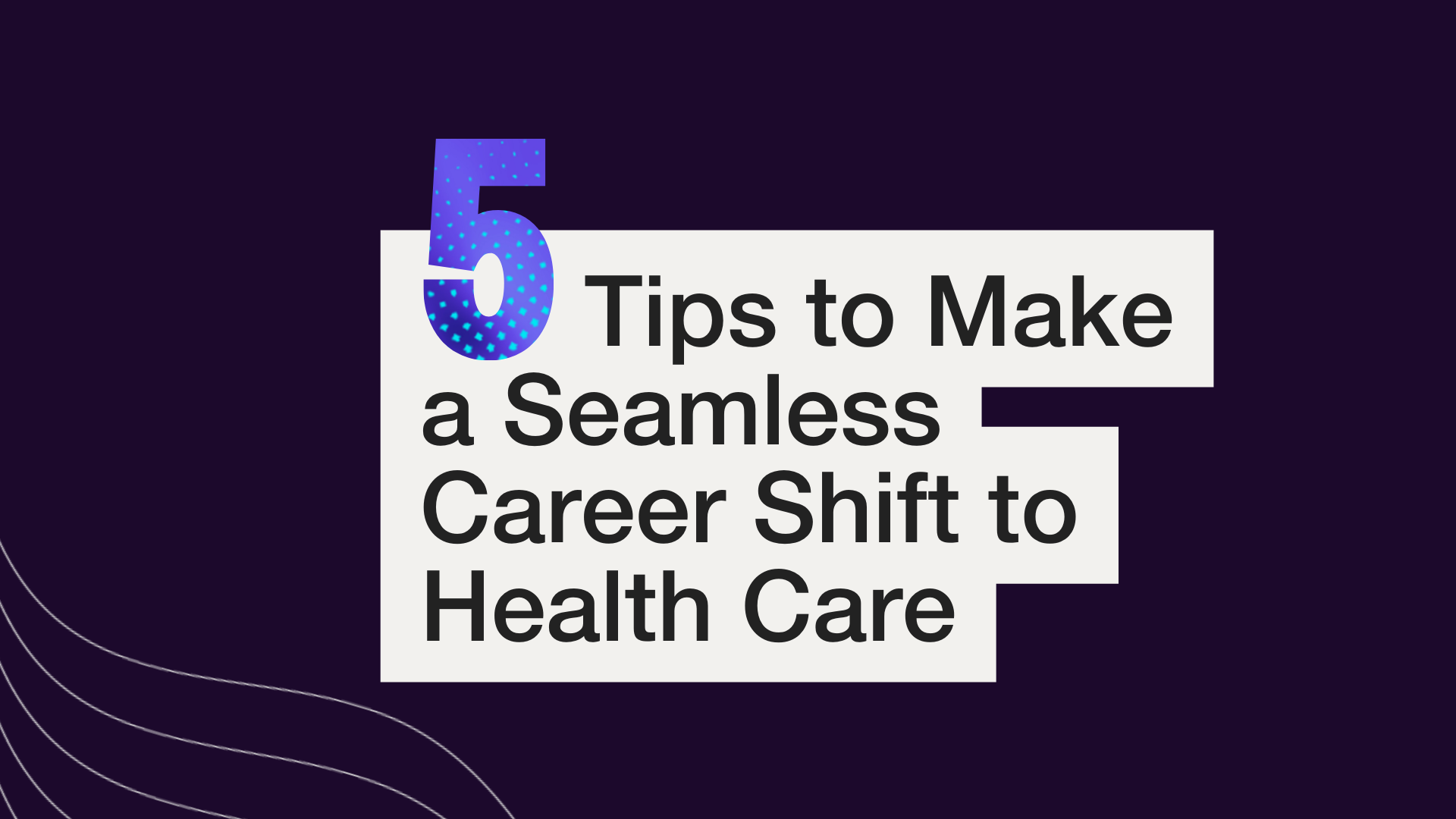5 Tips to Make a Seamless Career Shift to Health Care ⚕️

Making a career switch can be daunting, especially when transitioning into a field as dynamic and demanding as health care. Whether you’re exploring future career paths or an adult seeking a fresh start, the health care field offers many opportunities. From patient care to health care administration, the field is both diverse and rewarding. Here are five tips to help you successfully navigate your career change into health care.
1️⃣Research the Field Thoroughly
Before diving into a new career, it’s important to understand the landscape of the health care field. Health care careers include a variety of roles, each requiring different skills, education, and certifications.
Begin by exploring different career paths, such as nursing, medical technology, health care administration, or therapy. Consider what aligns with your interests and strengths. If you’re compassionate and enjoy working directly with people, nursing or therapy might be a good fit. If you have an interest in technology, medical technology or health informatics could be the right path. Understanding the different roles and responsibilities will help you make an informed decision about where you’d like to start your health care journey.
To help narrow down your options, take our interactive quiz, designed to match your interests and strengths with potential health care careers: https://joinmdhealth.org/#quiz
2️⃣Consider Part-Time Courses and Certifications
One of the most accessible ways to transition into health care is by taking advantage of hybrid or online courses and certifications. View the available education paths and programs offered in Maryland sorted by certifications, two-year degrees, or four-year degrees.
Additionally, many health care roles offer certifications that can be started online or hybrid while you’re still working your current job. These programs can help you build relevant skills and knowledge toward your new career path.
For example, if you’re interested in medical coding, many online programs allow you to complete coursework at your own pace. Similarly, certifications in medical billing and coding, health care management, or even specialized areas like geriatric care can be pursued online.
The flexibility of online education means you can continue earning an income while preparing for your new career.
3️⃣Leverage Your Transferable Skills
Changing careers doesn’t mean starting from scratch. Many skills you’ve developed in your previous career can be valuable in health care. Identifying and leveraging these transferable skills can give you a head start.
For example, strong communication skills are essential in health care, whether you’re working directly with patients or coordinating with other health care professionals. Problem-solving skills are equally important, as health care often requires quick thinking and decision-making in high-pressure situations. Organizational skills are crucial for roles in health care administration or managing patient care.
By recognizing how your existing skills can be applied to your new role, you can position yourself as a strong candidate, even if you’re new to the health care field.
4️⃣Get Familiar with Health Care Trends and Technologies
The health care field is rapidly evolving with new technologies and trends emerging regularly. Understanding these trends and getting familiar with health care technology can be helpful when entering your new job.
For instance, electronic health records (EHRs), telemedicine, and artificial intelligence (AI) are becoming increasingly integral to health care delivery. Familiarizing yourself with these technologies, whether through online courses or self-study, will make you more competitive and adaptable in your new role.
5️⃣Explore Different Specialties
Health care is a vast field with numerous specialties, each offering unique opportunities and challenges. Whether it’s pediatrics, geriatrics, mental health, or public health, take the time to explore and understand different areas to find where you might fit best.
Consider shadowing professionals in different specialties or volunteering in various health care settings. This hands-on experience will give you insight into the day-to-day responsibilities and help you determine what path aligns with your interests and goals.
For instance, if you have a passion for working with children, pediatrics might be the right path for you. If you’re interested in addressing broader health issues, public health or health policy could be a great fit. Exploring different specialties early on can help you chart a clear and satisfying career path in health care.
🎁Bonus Tip: Stay Resilient and Patient
You’re on the right track toward a career shift to health care. While the process can seem challenging, staying motivated by setting small, achievable goals can keep you on track.
Remind yourself of the reasons you’re making this change—whether it’s the desire to help others, job stability, or your passion for helping others. Patience and perseverance are key to successfully transitioning into a health care career.
With the right preparation and mindset, you can make a successful and fulfilling career change into health care.